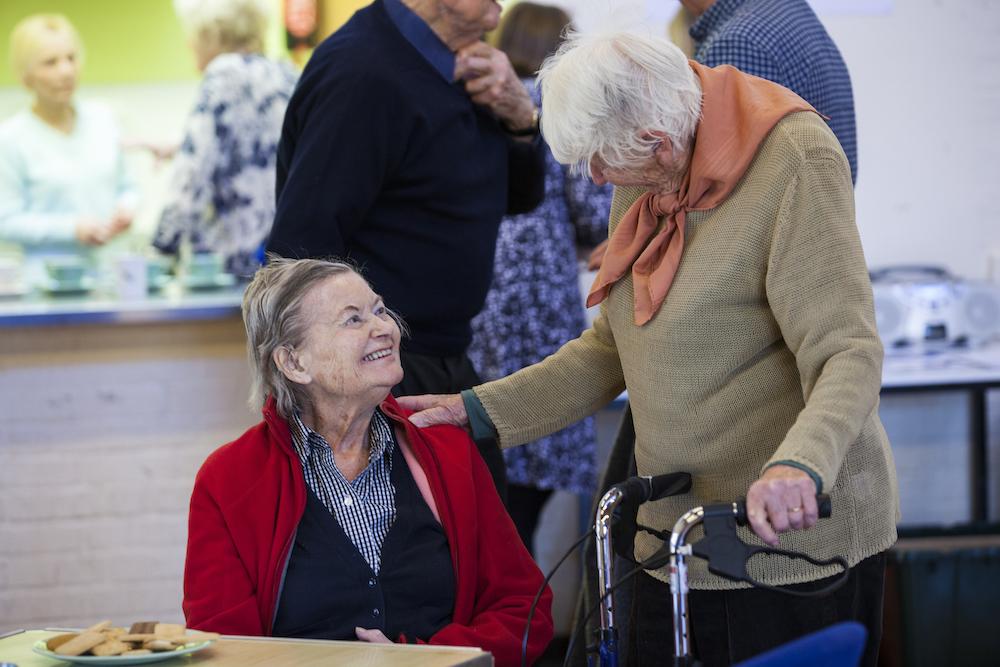Navigating life after a diagnosis of a neurodegenerative condition can feel challenging, not just for the individual diagnosed but also for their loved ones and caregivers. But you’re not alone; there are many resources available to help you manage your condition and maintain a good quality of life for as long as possible.
If you’ve been diagnosed with a neurodegenerative condition
Receiving a diagnosis of dementia or an associated neurodegenerative condition can be overwhelming, but there are many things you can do to help maintain your quality of life. Getting into a routine, staying socially and physically active and keeping your brain engaged with activities you enjoy can all make a positive difference.
Connecting with others who understand your experiences can be a good source of comfort and practical advice. Support groups, both local and online, offer a safe space to share your feelings and learn from others. For more information please visit our specific condition web pages.

Dementia support for family and friends
Supporting a loved one through a neurodegenerative condition can be emotionally challenging and overwhelming at times. It can help to learn more about the condition to better understand what your loved one is going through, and it’s important to remember to take care of yourself as well.
Joining a support group in your local area or online can connect you with others in similar situations, providing emotional support and practical tips. For example, Carers UK offers support for carers, including advice on managing care and access to benefits, while Dementia Friends provides information sessions and resources to help you support your loved one.
What help and support is available for dementia carers?
Caring for someone with dementia or a neurodegenerative condition is a demanding job, both physically and emotionally. It’s important to take care of your own needs too, taking breaks and seeking help when needed.
Several organisations offer support specifically for carers, providing both practical advice and emotional support. These include Carers Trust, which offers a range of support services including local carer centres and online resources, and Alzheimer’s Society’s carer support programme, which provides resources and support specifically for carers.
Other resources
- Dementia helplines
There are several helplines available for immediate support and advice. These offer confidential advice, emotional support and information on local services. Examples include:
- Financial support
Managing finances can sometimes be more difficult after a diagnosis. There are resources available to help you understand what help you can get and manage any financial concerns. For example, Citizens Advice offers free information on financial support and benefit entitlement.
- Local services
Local social services can also offer support, including home care, respite care and other community services. Your local council can provide information on services in your area.
Many charities also offer tailored support and resources. For example, Age UK provides advice on living with dementia, including financial and legal matters.
By reaching out to supportive communities, many people find the strength and information they need to navigate life after a dementia diagnosis. You are not alone, and help is available.
